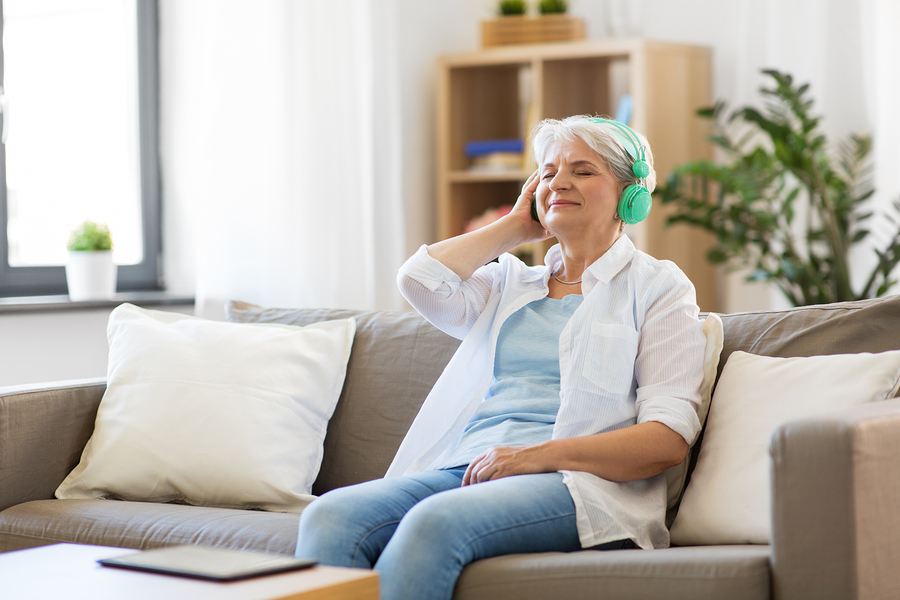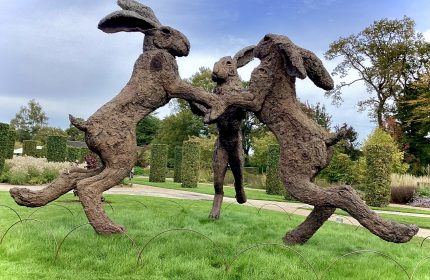5 ways to help ease dementia symptoms, as new research reveals music can play a ‘powerful role’
As a study suggests music can be a miracle medicine for dementia patients, the Alzheimer’s Society outlines drug-free ways to ease symptoms.
As people live longer, it’s estimated that over one million people in the UK and Ireland will have a diagnosis of dementia by 2025. And there’s currently no cure for this devastating condition.
But there are ways to ease its symptoms, and a new report has concluded that music can play a “powerful” role in improving the lives of those living with dementia.
The Power of Music report, which follows a study by UK Music, the collective voice of the UK’s music industry, and the health and music campaign Music for Dementia, has stressed the extraordinary health benefits of music, and called for more to be done to help people fully appreciate its power.
View this post on Instagram
“Sadly, we don’t have a cure for dementia, but we do have music to help address the symptoms, in order to help improve quality of life across the severity of dementia,” says Grace Meadows, campaign director for Music for Dementia.
She explains that because we process music across the whole brain and not just in one region, as dementia develops, unaffected parts of the brain can still process music, and research has shown that music therapy can reduce agitation and the need for medication in 67% of people living with dementia.
“Music is a conversation and it’s a powerful means of communication,” she stresses. “By working with music to help reduce the often-distressing symptoms of dementia – such as anxiety, apathy, depression and confusion – it enables people to contribute to and be part of a creative process that takes them out of their experience with dementia, connecting them to themselves, those around them and the world around them.”
The Alzheimer’s Society says music is one of the ways to treat dementia symptoms without using drugs, and Tim Beanland, head of knowledge at the Alzheimer’s Society, adds: “One of the best ways to help ease symptoms of dementia is by keeping active: physically, mentally and socially. Enjoyable activities such as music, song and dance can all help to improve wellbeing in people with dementia.
“Music and singing can bring back memories and alleviate low mood and anxiety, as well as promote communication. Perhaps most of all, it brings people together.”
This simple fairy lights analogy from @DementiaFriends explains how dementia affects the brain in different ways.
To understand more about dementia and how you can support people affected, become a Dementia Friend at https://t.co/b50Zs6aBup pic.twitter.com/IIajXnNw0j
— Alzheimer’s Society (@alzheimerssoc) April 18, 2022
The Alzheimer’s Society says the main non-drug treatments for dementia through ‘person-centred care’ are…
Cognitive stimulation therapy (CST)
This is a range of activities which help keep the brain active, including puzzles, talking about the news, or doing something creative, like singing.
Cognitive rehabilitation
Cognitive rehabilitation involves a therapist helping dementia patients to do activities they find difficult, such as learning or re-learning how to use household appliances or mobile phones. or managing daily tasks like cooking better. “This gets parts of the brain that are working to help the parts that are not,” explains the Alzheimer’s Society.
Life stories and reminiscence
This is a way to improve the mood, wellbeing and memory of people with dementia. For example, a scrapbook, photo album or app may be used to record or talk about important things that have happened in someone’s life, to make the memories easier to remember and access. Reminiscence work uses photos, objects or music in a similar way, to get people talking about their past.
Music and creative arts
View this post on Instagram
The Alzheimer’s Society says making music, dancing and painting can keep the brain active, and it recommends joining one of its Singing for the Brain groups.
Meadows stresses: “The benefits of music extend beyond the person living with dementia. We know those moments of connection with someone living with dementia can create a shared experience that enables people to be seen for who they are, beyond their diagnosis. It really can help to improve everyone’s mood.”
Complementary therapies
The Alzheimer’s Society says aromatherapy, massage or bright light therapy – where a person sits in front of a very bright light box every day to help regulate the circadian rhythm, which can be disrupted by dementia – can be used, as well as other standard treatments. It says people who are interested in trying complementary therapies for dementia should talk to their GP first, and should always make sure their therapist is properly trained.
The Press Association
Latest posts by The Press Association (see all)
- In Pictures: Party stalwart kept New Labour in touch with traditional supporters - November 21, 2024
- 6 easy indoor exercises to try this winter – and why they are good for you - November 19, 2024
- Martin Clunes: I can’t afford to retire – I’ve got too many horses - November 19, 2024
- How to avoid plant losses, flowering disappointments and container catastrophes - November 17, 2024
- John Lewis Christmas ad stars sister in last-minute dash back in time - November 14, 2024





















